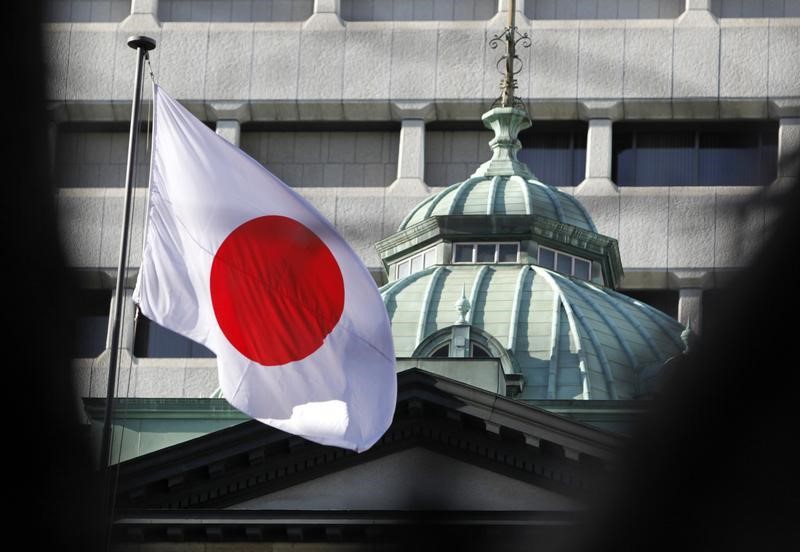(Bloomberg) -- The Bank of Japan left its main policy levers unchanged and took a more optimistic view of the growth outlook while cutting its price forecast for this year as the world’s third-largest economy enters a renewed virus emergency.
The BOJ maintained its interest rate and asset purchase settings, according to its policy statement Tuesday, an outcome expected by all 44 economists surveyed by Bloomberg.
In its quarterly outlook report, the bank raised its growth forecast for the fiscal year started this month to 4% from 3.9%, despite the start of new emergency restrictions that some economists warn could risk a double-dip recession. At the same time it sharply lowered its price forecast for this year to 0.1% in a further signal that it won’t be changing policy for some time to come.
A new forecast for fiscal 2023 also confirmed that Governor Haruhiko Kuroda will fail to reach his goal of stable 2% price growth during his current term after what will have been more than a decade of stimulus to stoke inflation.
The latest decision and projections will further cement the view that the BOJ is likely to keep its stimulus unchanged well beyond global peers such as the Federal Reserve and the European Central Bank.
The bank already paved the way for a long policy hold with a raft of tweaks to its stimulus framework last month that enabled it to buy fewer assets. The BOJ said the changes gave it more flexibility to ramp up its measures when needed while reducing the side effects of its stimulus.
Just over half of economists surveyed by Bloomberg characterized the biggest policy review since 2016 as a shoring up of the BOJ’s easing program while around 40% said it was a step in the direction of normalizing policy. Most expect the bank to leave policy unchanged through the end of next year.
The tweaks enable the bank to more flexibly adjust its asset buying between policy meetings without changing its main settings. That flexibility could come in handy amid continued uncertainties over Japan’s outlook with a slow vaccination program leaving people, businesses and the economy at risk for longer.
Those uncertainties heightened after Prime Minister Yoshihide Suga installed stricter restrictions in the nation’s biggest cities Sunday, crimping some of the optimism drawn form recent signs of a strong U.S. recovery that could help an export-led recovery.
“The pandemic could hit the economy hard again,” economist Hirofumi Suzuki at Sumitomo Mitsui (NYSE:SMFG) Banking Corp. said ahead of the decision. “The BOJ has to keep close eye on infection numbers when its conducting policy.”
In contrast, the Fed is expected to begin trimming its asset purchases before the end of the year as it makes a strong recovery from Covid-19, according to a separate survey of economists by Bloomberg. The ECB last week left its crisis-fighting tools unchanged as it saw economic risks are on the downside for near-term.
Still, in raising its growth forecasts, the BOJ has taken a more bullish stance on the trajectory of the recovery. As for its lower inflation view the bank said the reduction to 0.1% from 0.5% this fiscal year was largely down to cheaper mobile phone fees. Suga has been pushing for cheaper phone charges as he places more importance on voters’ pocket books than their inflation expectations.
With ultra low rates set to be prolonged further still, the nine-member board invited the bank’s financial system department to participate in the policy meeting for the first time, a shift that could be aimed at giving more consideration to struggling regional banks.
“The gap in vaccinations with the U.S. will further widen the difference in economic activity and prices,” said Mari Iwashita, chief market economist at Daiwa Securities. “The BOJ’s top priority should remain on keeping the financial system stable until Covid is over.”
Kuroda is set to give more details on the economic outlook at a press briefing from 3:30 p.m.
(Adds more details, economist comments)
©2021 Bloomberg L.P.
